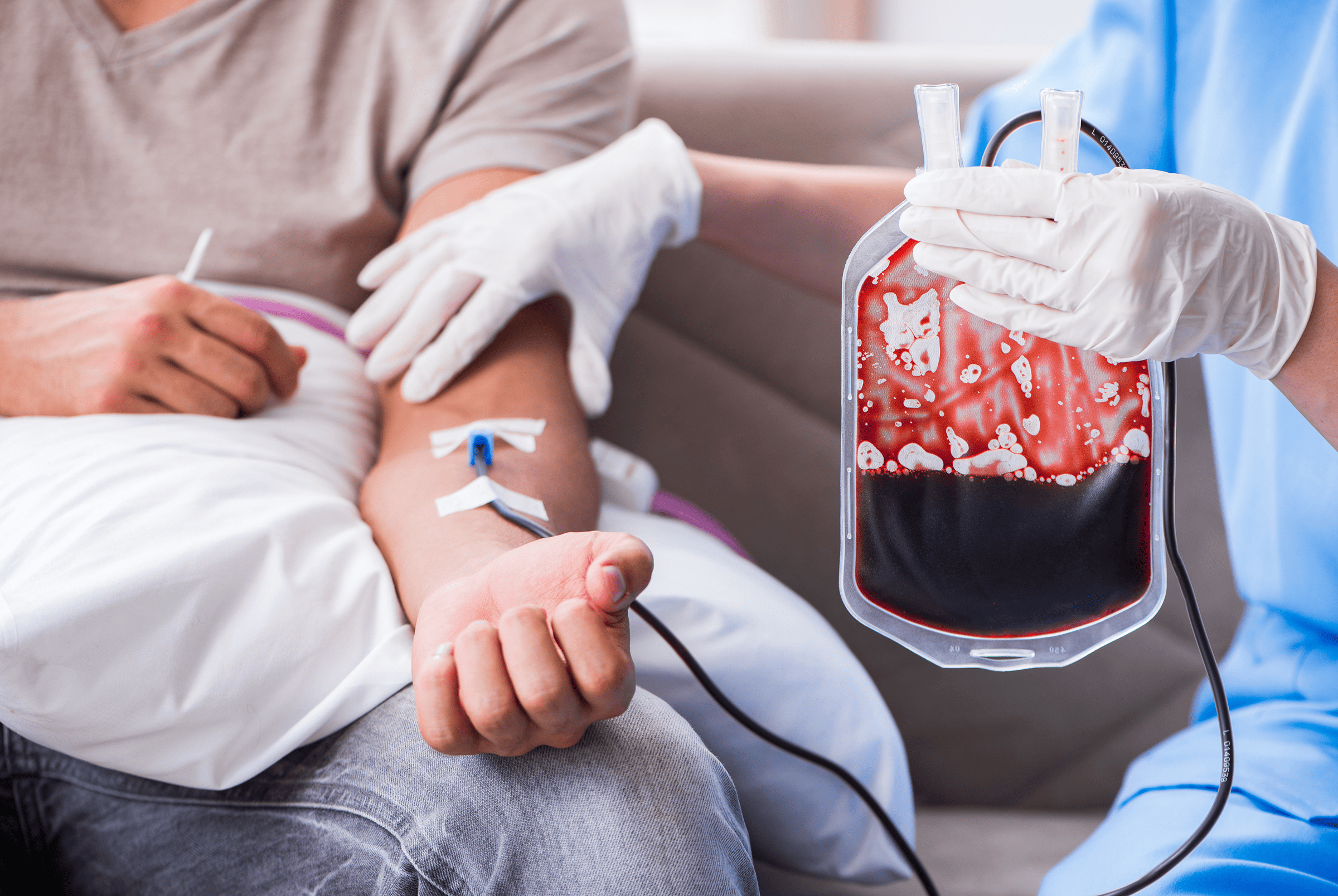
- Schizophrenia Nursing Diagnosis Steps & Symptoms Recognition
- Schizophrenia Nursing Assessment: Symptoms, Their Depth and Care Plan
- Schizophrenia Nursing Questions to Determine Patients’ Condition
- What Is a Nursing Care Plan for Schizophrenia
- Defining What Is Important in Nursing Care for Schizophrenia
- Nursing Interventions for Schizophrenia: Management and Support
In the United States, mental health illnesses are widely recognized and actively being studied. To divide their existing multiplicity, the National Institute of Mental Health uses the terms Any Mental Illness (AMI) and Serious Mental Illness (SMI). Nursing specialists recognize schizophrenia as the one leading to significant disability. People with this personality disorder experience difficulty in all personal, professional, and social areas of life.
Early diagnosis is not just important but crucial. In the case of suspected schizophrenia, nursing diagnosis and further interventions can play a critical role in the individual’s future. Not to mention the global role of healthcare interventions and supporting patient adaptation to life with their diagnosis.
Schizophrenia Nursing Diagnosis Steps & Symptoms Recognition
Nurse diagnosis takes a frontline position in diagnosing schizophrenia. It identifies the problems an ailing person is facing and helps guide the development of treatment and care plans.
In the process of making a schizophrenia nursing diagnosis, there are indicative steps nurses can follow:
Step 1: collect the information. It includes interviewing, observing, reviewing medical records, and performing physical examinations.
Step 2: information analysis. Nurses analyze the information collected to determine the issues the individual is experiencing.
Step 3: making a diagnosis. It should based on expert conclusions on the symptoms, the individual’s medical history, mental state, and social functioning.
The health system considers schizophrenia to be a genetically determined SMI. It has not yet been determined which genes this illness is associated with, but it is clear lifestyle provokes it. This disorder is considered early-onset, and the first signs can appear in adolescence. In families with genetic risk, monitoring possible symptoms for early nursing diagnosis is essential.
The exact causes and mechanisms of occurrence have yet to be studied. But experts identify genetics, hormones, psychological events, and environmental risk factors. That’s why, when collecting anamnesis to a nursing diagnosis for schizophrenia, it is vital to take into account all factors. However, it is the symptoms that determine the diagnosis.
Schizophrenia Nursing Assessment: Symptoms, Their Depth and Care Plan
Nursing assessment for schizophrenia patients is the process of gathering info about someone with this SMI. The goal is to assess the symptoms of the disease and their depth and create a care plan.
The first thing a specialist determines in diagnosis is the symptoms. WHO defines them without dividing them into groups. But there is also a grouping into positive, negative, and others. And yet, the main ones significantly change a person’s reality.
Positive:
- They see objects or hear sounds or voices that do not exist in reality.
- They think someone else reads their minds and controls their thoughts and behavior.
- They have beliefs they do not give up despite convincing evidence to the contrary.
Negative:
- They have difficulty expressing emotions. They do not show any emotion on their face, or they have a flat or monotone voice.
- They have difficulty experiencing pleasure. They do not feel happy, joyful, or excited by things, usually bringing pleasure to other people.
- They cannot plan, follow a schedule, organize activities, or make decisions.
- They have reduced or no interest in social life.
Additionally, schizophrenia nursing assessment considers cognitive symptoms:
- Disability to navigate in space and time.
- Disability to think logically or consistently.
- Incoherent speech that means the patient jumps from one thought to another or speaks in a way that makes no sense.
Signs can appear and disappear and vary from person to person. However, there are some common and severe ones when it comes to this diagnosis. The nurse assessment in such a case serves as the basis for treatment plans and support. And further questioning helps to evaluate the depth of the condition.
Schizophrenia Nursing Questions to Determine Patients’ Condition
When diagnosing and assessing the patient’s condition, health workers use schizophrenia nursing questions. To create the questionnaire, they use the DSM-5 or similar ICD-11 manuals. The questionnaire consists of two parts.
The first part includes questions about symptoms, such as hearing or seeing something that does not exist or believing in others who want to cause harm. The second contains questions about the ailings’ social adaptation. Or more precisely, about study or job, relatives or friends, etc. You might use them as a nurse when musing upon how to write a nursing care plan.
What Is a Nursing Care Plan for Schizophrenia
A nursing care plan for schizophrenia is a crucial document developed individually for each patient. It describes the intervention goals and actions to be taken to achieve those goals. Nurses work it out with the patient and involve their family. Within mental health, the caring plan has only two goals – the maximum possible reduction of symptoms and socialization.
BSN students often face the need to write essay about schizophrenia. The care plan plays an integral part in this assignment. It helps to understand how nurses care about individuals and how they help them achieve the best possible level of functioning.
Defining What Is Important in Nursing Care for Schizophrenia
This severe disease is among the top 15 causes of disability worldwide and refers to chronic. The most essential part of nursing care for schizophrenia is to help the ailings adapt to life with the diagnosis. To reach these goals, specialists use medication and individual and family therapy. Constant monitoring and timely plan correlations are also significant.
The nurse’s task is personalized support and to help individuals learn to live with it. They must learn a lot from accepting their situation and recognizing warning signs to lead the most fulfilling lifestyle possible as far as possible in their situation. Because of the stigma surrounding these people, nurses need to work closely with them and their families. And that’s where the schizophrenia nursing interventions plan part starts.
Nursing Interventions for Schizophrenia: Management and Support
At its core, nursing interventions for schizophrenia are a general concept of all measures and actions within the competence of nursing staff. It consists of activities aimed at supporting patients.
- Medical intervention. Nurses play an essential role in patients’ support. They work with patients directly and constantly, informing them about the importance of taking medications under prescription. The nurse monitors the side effects of drugs and reports any medication-related problems to physicians so that they can adjust dosages.
- Psychosocial rehabilitation. Psychotherapy is a valuable addition to the rehab of people with such a diagnosis. It helps to adjust to daily challenges and manage symptoms. It is a highly effective way to manage patients’ conditions, and it can even help reduce the risk of symptoms reoccurring. In addition to the traditional “talk to me” approach, therapy uses other methods: yoga, art therapy, etc. The nursing intervention includes attendance control and assistance sticking to the care plan.
- Family involvement. Since stigma is often these patients’ reality, nurses must work closely with them and their families. It includes family therapy and educational programs, acknowledging family members about the disease, what they can expect, and how to help their loved one manage it. Nursing intervention here also aims to work with the family, minimizing stigma and helping to avoid self-isolation and related problems.
- Social support and monitoring. There are special supporting programs. For complex situations, this is the Assertive Community Treatment program. For first-episode-psychosis people, these are recovery-focused programs. Constant nursing care allows nurses to monitor the patient’s condition closely and identify any changes promptly.
Schizophrenia is a severe illness. Its complexity lies in its symptoms and the stigma accompanying people. Maintaining a high level of nursing education in recognizing signs, quality nursing assessment and accurate diagnosis, and developing individualized care plans are essential. It is also crucial to work with the public to raise awareness and promote social adaptation for patients.















































